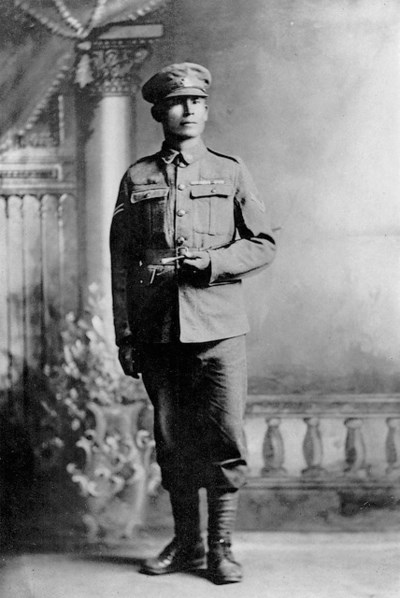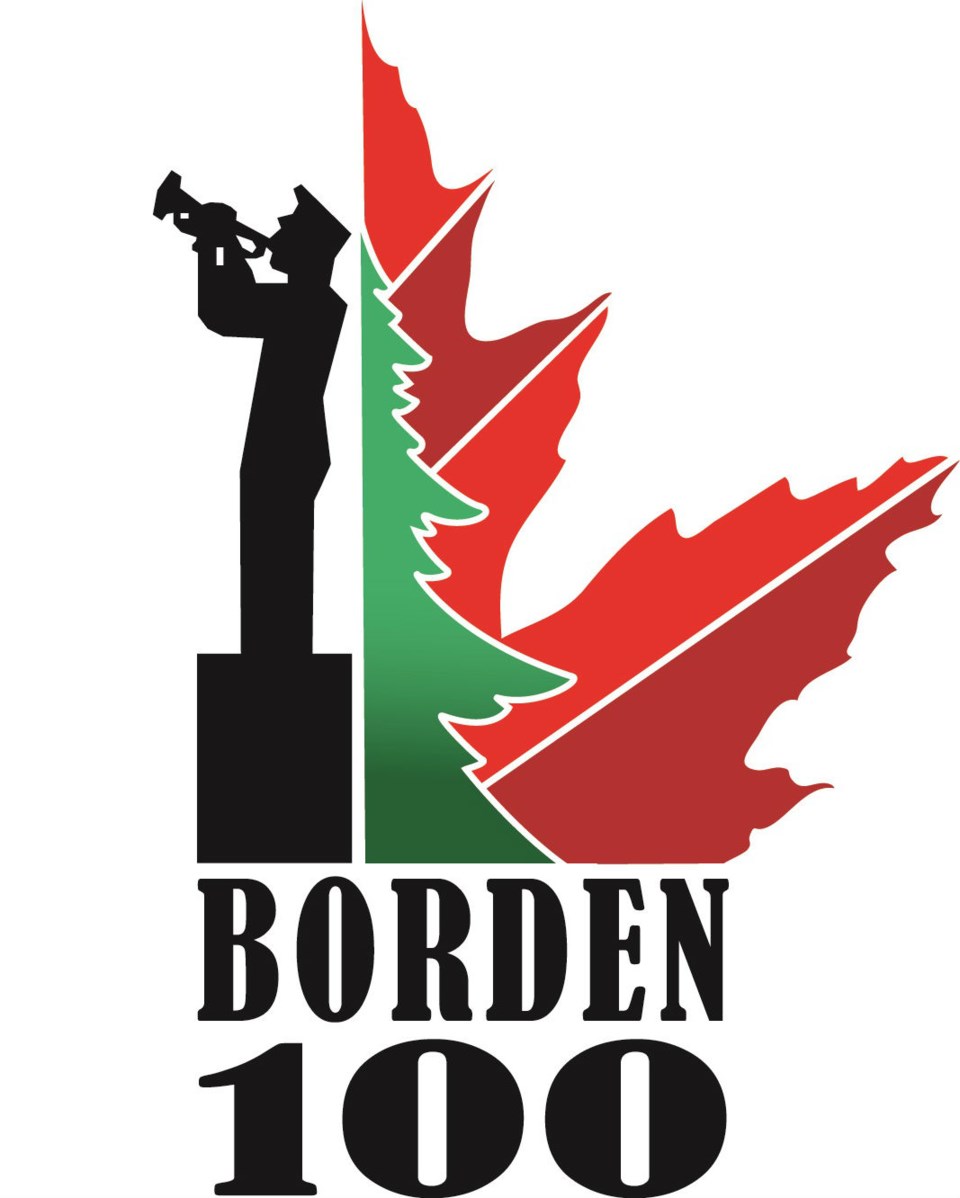Corporal Francis “Peggy” Pegahmagabow grew up on the Parry Island Reserve, near Parry Sound, Ontario.
As his parents had passed while he was at an early age, Pegahmagabow was raised by the First Nation community according to the traditions of the Anishnaabe (Ojibwa). He was taught traditional healing customs by his foster mother, as well as hunting and fishing.
As a teenager, he worked at lumber camps and fishing stations. By 1912, he found work at the Department of Marine Fisheries as a fireman on the Great Lakes.
 Corporal Francis “Peggy” Pegahmagabow
Corporal Francis “Peggy” PegahmagabowWhen the war started, Pegahmagabow wasted no time. He volunteered for service in 1914 with the 23rd Regiment, otherwise known as the Northern Pioneers.
Having joined almost immediately after the declaration of war, Pegahmagabow served for nearly the full duration.
During the war, Pegahmagabow was nick-named “Peggy” by his fellow soldiers. Although he developed as an excellent scout, Peggy excelled as a sniper.
Over the course of the war, he was credited with killing over 350 German soldiers, and the capture of 300. For his sniping and scouting skills during the war, Pegahmagabow was awarded the Military Medal and two bars, as well as the 1914-15 Star, the British War Medal and the Victory Medal.
By the end of the war, he became the most decorated Aboriginal Soldier in the Canadian military.
After his time in the war, Peggy became increasingly involved in his community. Twice he became Chief of his band.
During his time as Chief, he was a strong activist for Aboriginal rights. He sent letters to Ottawa, to the Prime Minister as well, demanding recognition and better treatment for First Nation Aboriginals, helping to form the initial national native rights movements in Canada.
Pegahmagabow remained involved in his community, however humble about his heritage.
Though he was faced with persecution and controversy in his deeds, a piece of Canadian Military history has been etched out in his honour, forever remembering his military skill, and also his drive for equality.
Passing away in 1952, Peggy left behind a long legacy. A Canadian war hero, father, husband and Aboriginal rights activist, he is remembered at CFB Borden. The Rangers (3CRPG), a unit responsible for training Aboriginals in isolated Northern communities as part of the Ranger Program, have named their building after him, and dedicated a monument to honour his memory, which is found in front of the 3rd Canadian Ranger Patrol Group building at CFB Borden.
Each man and woman passing through the gates of Borden has the ability and strength to impact the world as Cpl Francis Pegahmagabow.
Though he did not train at Borden, his legacy will be remembered here through this Centennial and the next.
Sources: http://www.thecanadianencyclopedia.ca, http://www.veterans.gc.ca



